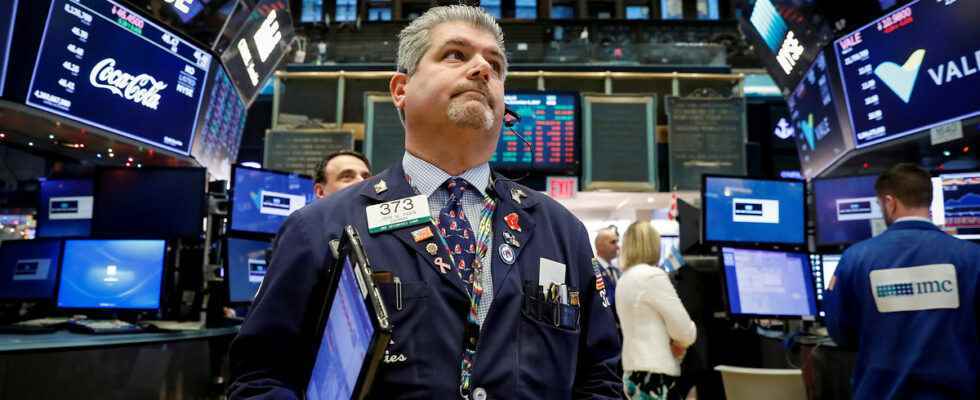The alarm clock still looks difficult for the Paris Stock Exchange, which should struggle to recover from its fall of nearly 2% the day before. Half an hour before the first exchanges, the Cac 40 future contract suggests a decline of around 0.5% at the opening.
Blame it on Wall Street above all, where the major indices have once again unscrewed for a second consecutive day. The Dow Jones dropped 1.91%, the S&P 500 lost 2.14% and the Nasdaq Composite 2.55%. This is their worst session since June. Much trepidation ahead of the Jackson Hole symposium, with most market strategists now agreeing that Fed Chairman Jerome Powell will be much more incisive than in the last decision July monetary policy statement. The economic situation allows it. While inflation continues to peak at 8.5% over one year, the job market remains solid, as did the last season of corporate results overall. The scenario of a 75 basis point hike in key rates in September is also gaining ground. According to the tool developed by the CME based on futures on Fed-funds, the probability is currently assessed at 58.5%, compared to only 47.5% on Monday morning. The yield on 10-year bonds rose above the 3% threshold yesterday (3.007% this morning) for the first time in a month.
“The scenarios are collapsing”
The other evil of the moment is to be sought in Europe, with fears of an onset of recession which seems more and more inevitable, while the peak of inflation is still not in sight and the European Central Bank , too, having to be more offensive. Especially since energy prices are constantly rising, especially those of gas, which have returned to levels not seen since the first days of the invasion of Ukraine, multiplied by more than five since the start of the year across the Rhine. Russian gas giant Gazprom announced on Friday that its gas deliveries to Europe through the Nord Stream 1 gas pipeline will be interrupted for three days, from August 31 to September 2, for “maintenance” reasons. Germany, which accounts for more than 30% of euro zone GDP, is in the front line. The Dax also lost 2.3% on Monday, the biggest underperformance of the day on the continent. ” Instead of raising rates more than necessary, Christine Lagarde had better beg Putin to restore Europe’s energy supply », judge this morning Ipek Ozkardeskaya, of Swissquote.
For Ed Moya, market analyst at Oanda, “ the scenarios built around global growth are collapsing, that’s what’s fundamentally weighing on risk appetite right now, the US can’t continue to be attractive while the rest of the world fails. »
The euro confined below the threshold of 1 dollar
The market will be able to take the pulse of the euro zone economy on Tuesday, with the publication, in the morning, of the PMI indices for the manufacturing and non-manufacturing sectors in preliminary data for August. Further deterioration is to be feared if we refer to that of consumer confidence, whose purchasing power is weighed down by the high levels of inflation.
Sign of the ambient malaise, the euro remains weak, under the bar of 1 dollar, its lowest level since December 2002. Oil, him, rises a little this morning, with 97,20 dollars the barrel of Brent. OPEC is ready to cut production to correct the recent drop in oil prices linked to macroeconomic fears, Saudi Energy Minister Prince Abdulaziz bin Salman has said.
